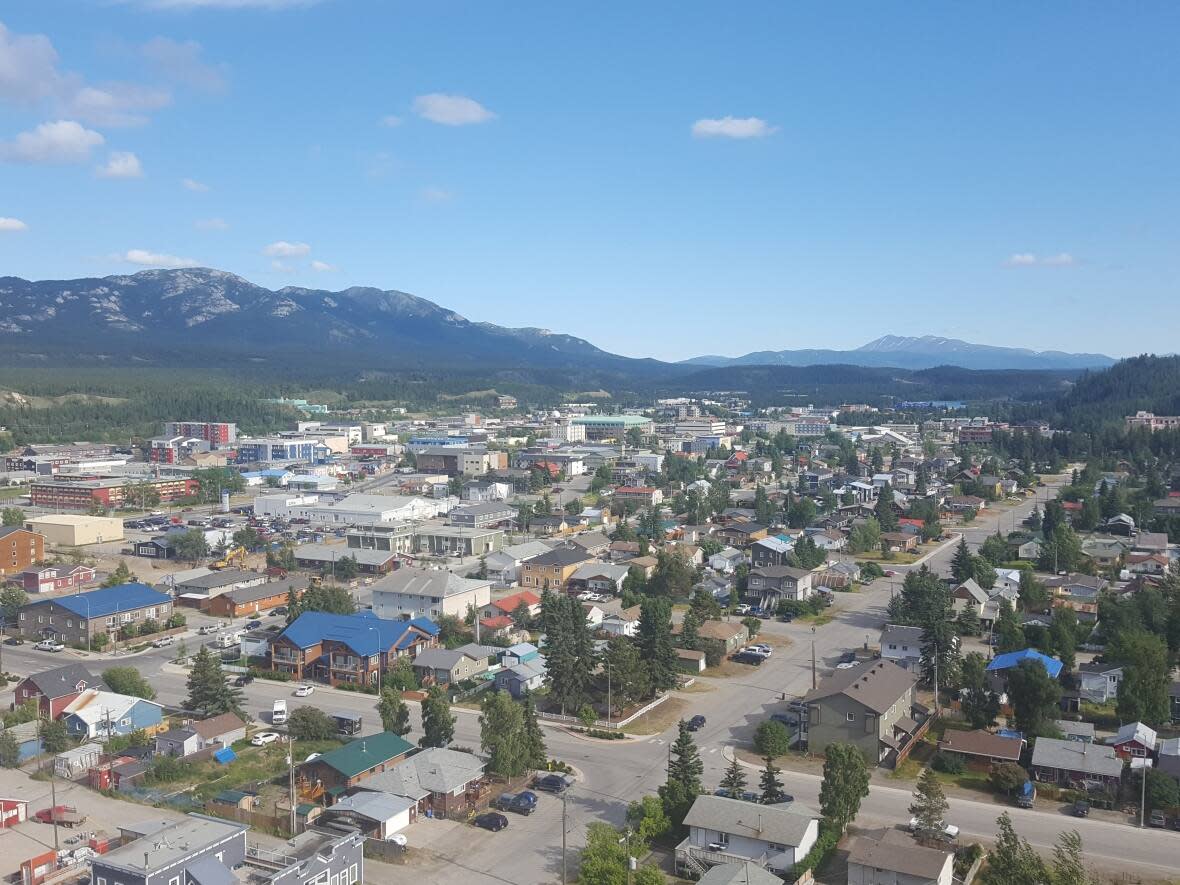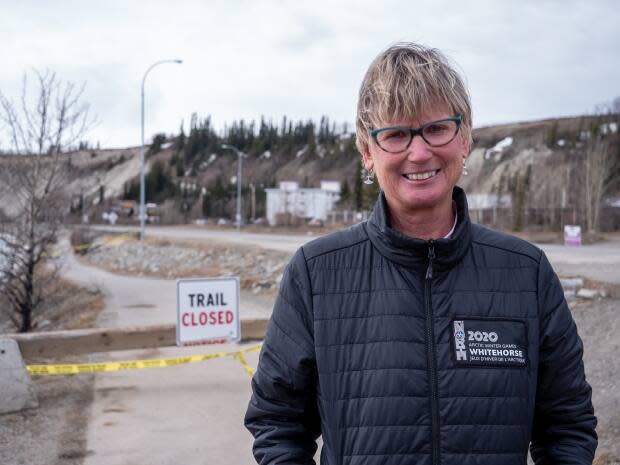Proposed gravel pit takes spotlight at public hearing on Whitehorse community plan

One way or another, Whitehorse will need a source of gravel — and soon, says the Yukon Contractors Association.
"While I respect the numerous voices in the room that would profess to not be excited about the development of the quarry, the reality is that the city of Whitehorse in the broadest sense is running out of gravel," said the group's president Murray Arsenault at a public hearing on Monday evening.
The city council hearing was focused on the latest draft of the city's official community plan. Residents and representatives of organizations had a chance to have their say on the plan.
The proposed official community plan for Whitehorse sets the stage for unprecedented housing growth in the city to meet the demands of its growing population. The plan states that 6,150 units need to be built for a population expected to exceed 40,000 by 2040.
For much of the evening, council heard feedback on its decision to axe the development of the proposed gravel pit called Stevens Quarry in the northwest of Whitehorse. Gravel is often used for various purposes in construction.
Steven Quarry was included in an earlier draft of the official community plan, but some city residents spoke out against it and it was dropped from the most recent draft.
Arsenault said the sources that contractors in the city have been using for gravel, like the McLean Lake quarry, are "coming to the end of their natural lives."
"For what it's worth, the question becomes what are we as a community going to do to identify new sources of aggregates to the volume that we're going to need?" he said.
"I know there are submissions that have been made to the city by residents that live close to some of the existing gravel pits."
However, Arsenault said there are ways to limit the potential challenges with the gravel pit and to help assuage the concerns of residents, with dust mitigation, noise control, and setting out specific time of operations.
Arsenault agreed that gravel extraction ideally happens closer to development, but added that it isn't always possible.
"Developments like Whistle Bend rely on imported aggregates," Arsenault said.
"They're not built on places like Porter Creek where four feet below the surface is a whole lot of rocks."
Mayor Laura Cabott agreed that there isn't a solid alternative to Stevens Quarry.

"We need gravel. We're a growing city. We need gravel for roads, fire halls, houses, buildings, everything. So, I am concerned," Cabott said.
"There is no option that has been identified if Stevens Quarry is not eventually developed."
She said Stevens Quarry has been identified as the city's best future source of gravel.
Health concerns
Resident Vickie Roach, who lives in Hidden Valley, close to the proposed quarry location, was among those glad the city struck the quarry from the most recent draft. She said she came to the public hearing to make sure the city ditches that plan for good.
She opposes the quarry development because she feels it would affect her health.
Roach said she has lung disease and suffers from migraines.
"Dust affects me … and noise triggers migraine headaches," she said.
"I know there has been mitigation. I've read a lot of information on mitigation on dust and noise. And I beg to differ that that would help somebody like me."
She also has concerns that a quarry would disturb the area.
"I worry too about tourists and Yukoners who want to canoe down the pristine Takhini River. You're going to hear the crushing of gravel and there's going to be a lot of noise there and it's going to be magnified," Roach said.


